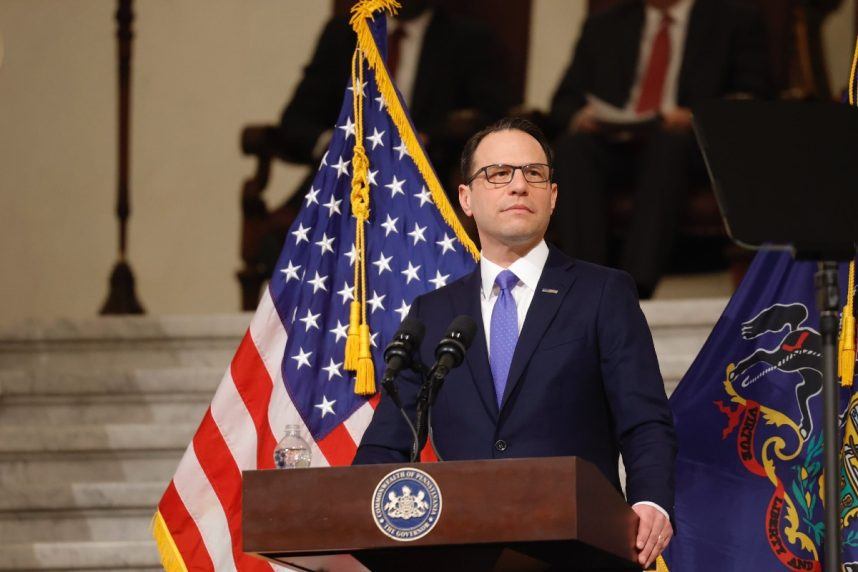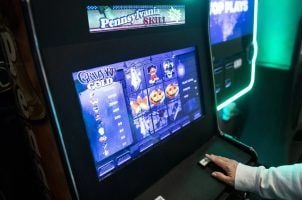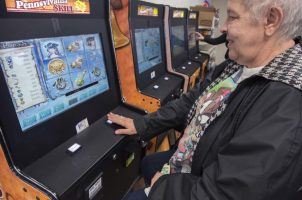Pennsylvania Governor Ready to Reap Tax Rewards of Legal Skill Games
Posted on: February 7, 2024, 09:15h.
Last updated on: February 7, 2024, 08:29h.
Pennsylvania Gov. Josh Shapiro (D) wants to legalize and heavily tax skill gaming machines to partially help fund his proposed $48.3 billion budget for the 2024-25 fiscal year.

Shapiro’s spending plan represents a 7% year-over-year increase. With tax revenue forecast to grow only 2%, Shapiro has proposed tapping into the state’s cash reserves and legalizing new industries, with recreational marijuana and skill gaming atop the headlines.
Pennsylvania courts last year ruled that skill games — machines that look and function like a traditional casino slot, but differ in that they incorporate skill elements that can dictate a player’s outcome — aren’t illegal gambling devices. While the state’s attorney general is appealing the case to the Pennsylvania Supreme Court, Shapiro included possible tax revenue from the gray machines in his budget.
“A tax of 42% on the daily gross gaming revenue from electronic gaming machines that involve an element of skill and are regulated by the Pennsylvania Gaming Control Board. This budget assumes the board collects the tax and deposits the money into a restricted account, which is then transferred to the General Fund. Estimates assume an effective date of July 1, 2024, with initial revenue collections realized in 2024-25,” Shapiro’s proposed tax and revenue modifications section of his budget explained.
The governor’s office believes skill games will deliver the state $150.4 million in new tax revenue in the 2024-25 fiscal year (July 1, 2024, through June 30, 2025). The benefit is presumed to grow to $313 million for the 2025-26 fiscal year.
Skill Gaming Interests Celebrate
Pennsylvania Attorney General Michelle Henry is appealing the skill gaming lawsuit to the state’s highest court. Shapiro’s embracing of the controversial machines opposed by the state’s casino interests could hint that the governor will direct his top law enforcement officer to drop the case. Shapiro says his fiscal blueprint is designed to “get stuff done.”
Since my first day in office, I’ve been focused on getting stuff done — and this budget will continue to create opportunity for every Pennsylvanian with historic investments in economic development, education, healthier and safer communities, and much more,” Shapiro said on Tuesday. “I look forward to working with the General Assembly to continue to get stuff done for the good people of Pennsylvania, solve the most pressing problems we face, and meet this moment responsibly and with bipartisan compromise.”
Pace-O-Matic (POM), the Georgia-based software company that designed many leading skill gaming titles, including Pennsylvania Skill, applauded Shapiro for endorsing skill games.
“Our company, as well as thousands of Pennsylvania bars, restaurants, convenience stores, fraternal clubs, VFWs, and American Legions, are eager to pass legislation regulating and taxing skill games. We look forward to working with the Governor, his administration, and the general assembly to pass and formalize a fair regulatory and taxation structure for the skill game industry,” said Paul Goldean, POM president and CEO.
Casino Argument
Pennsylvania significantly expanded gaming in the commonwealth in 2017 under Democratic Gov. Tom Wolf. The gaming expansion package included retail and online sports betting, iGaming, video gaming terminals at truck stops, and new so-called “mini-casinos” that are allowed to house up to 750 slot machines and 40 table games.
The state currently has 17 brick-and-mortar casinos. Paired with online slots, the gaming industry says the state has reached market saturation. The companies that operate the casinos say skill games hurt their businesses and cut into critical tax revenue their games generate for the commonwealth.
The casinos also argue that they paid hefty licensing fees — $50 million for a Category 2 license for a property like Hollywood Casino at Penn National Race Course and Rivers Casino Pittsburgh. About half of their slot income is also directed to the state.
The casinos also contest that restaurant, convenience store, and other small business employees are not adequately trained to regulate who plays skill games. They claim skill games have few consumer protections, have been played by children, and present problem gambling concerns.
Related News Articles
Pennsylvania Skill Gaming Bill Receives Testimony From Casino Lobby
Most Popular
FTC: Casino Resort Fees Must Be Included in Upfront Hotel Rates
Genovese Capo Sentenced for Illegal Gambling on Long Island
NBA Referees Expose Sports Betting Abuse Following Steve Kerr Meltdown
UPDATE: Former Resorts World & MGM Grand Prez Loses Gaming License
Most Commented
-
UPDATE: Whiskey Pete’s Casino Near Las Vegas Closes
— December 20, 2024 — 30 Comments -
Caesars Virginia in Danville Now Accepting Hotel Room Reservations
— November 27, 2024 — 9 Comments -
UPDATE: Former Resorts World & MGM Grand Prez Loses Gaming License
— December 19, 2024 — 8 Comments -
FTC: Casino Resort Fees Must Be Included in Upfront Hotel Rates
— December 17, 2024 — 7 Comments
















No comments yet